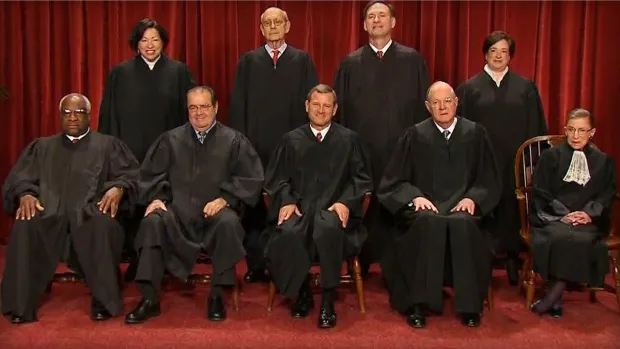At the core of the two same-sex marriage cases argued this week before the Supreme Court is the fundamental question of whether the Constitution requires the state and federal governments to treat same-sex marriage exactly the same as traditional, opposite-sex marriage for all purposes for all time, or whether it is permissible to draw reasoned distinctions between the two, ranging from California’s simple reservation of the term “marriage” to opposite-sex couples to the federal government’s comprehensive reservation of all federal benefits of marriage (including joint tax filings, Social Security benefits and immigration status) to opposite-sex couples. I respectfully submit that this should not be a difficult question. Common human experience, basic biology, and existing social science all confirm that there are significant differences between SSM and traditional marriage. Whether or not you support SSM as a political and policy matter, there should be no doubt as a legal matter that the state has the same legitimate right that it has always possessed to draw distinctions between the two in the many, many areas of law that touch on marriage and family life.
I have not, over the years, spent much time or energy on the battle over political recognition of same-sex marriage; while I don’t think it’s a wise idea, it is also not likely to have enormous consequences, for reasons I discuss below. Democracy works, however imperfectly: things done legislatively can be modified or undone the same way, can be adapted in different ways to the needs of different jurisdictions, and can be passed or amended with protections for conscientious dissent. Personally, for two decades, I’ve supported the “live and let live” option of civil unions, the moderate solution that allows people the freedom to choose whatever partner they want and make a life together, with the basic rights of contract, inheritance, hospital visitation and the like. Call it a marriage if you want, but without the official endorsement and coercive power of the state behind the name.
But the democratic process is one thing. A judicial determination that the Constitution prohibits recognition of any distinctions between the two institutions for all time would have much more far-reaching effects on our laws – effects we may not even be able to anticipate or foresee until creative lawyers have gone off to the races with this freshly-minted legal doctrine. We have seen, over and over, how changes in law and policy produce unforeseen or unintended consequences in the family and society; the institution of marriage in particular has buckled badly under a long series of liberal social experiments over the past five decades. You’d think that by now we would at least have learned to stop using irrevocable court decisions to open Pandora’s Box.
It does the law no good to pretend things that are not so. Whatever the merits of SSM, it is not the same thing as marriage between a man and a woman, and the differences are neither irrational nor insignificant. Even if you support SSM, the only reasonable conclusion is that male-male or female-female marriage is not the same as male-female marriage. Let us count the most obvious ways.
Continue reading Same Sex Marriage Is Not the Same As Opposite Sex Marriage

